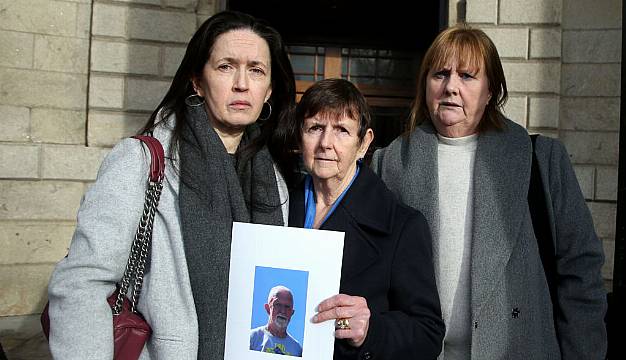A man who was admitted to University Hospital Waterford as he recovered from major heart surgery fell and hit his head and was dead over 18 hours later, the High Court has heard.
The widow and family of Waterford man Bobby Gaule on Thursday settled a High Court action against the HSE over the 70-year-old man’s death. The settlement is without an admission of liability.
It was claimed that Mr Gaule had suffered a head trauma when he fell and hit his head on a wall when he went to the bathroom in the early hours. A brain bleed developed, and Mr Gaule died on December 4th, 2020.
The family’s counsel, Patrick Treacy SC, instructed by Cian O'Carroll solicitors, told the court Mr Gaule’s family was devastated at the loss of their much loved husband, father and grandfather.
Mr Treacy said the family felt there had been no proper communication with them or investigation into the matter.
Bobby Gaule was a former Waterford Crystal worker who took part in the documentary Broken Glass.
The family expected many happy years together, but he was taken from them “dramatically and suddenly,” Mr Treacy said.
Annette Gaule, of College Green in Waterford city, had sued the HSE over the death of her husband, Bobby Gaule.
The settlement, the details of which are confidential, is without an admission of liability.
Mr Gaule had heart surgery in a Dublin hospital in October 2020. In November he was transferred to University Hospital Waterford for further recuperation.
Mr Treacy said when Mr Gaule was admitted to the Waterford hospital on November 20th, 2020, a falls risk assessment was carried out. Mr Gaule was classed as being at a medium risk of falling, and he was in the severely frail category.
Further risk assessments were carried out, including on December 3rd, which indicated he was at a medium risk of falling.
Mr Treacy said for patients considered to be at a medium risk of falling a care plan should be commenced and an information leaflet given to the patient.
It was their case that there was no evidence of any such care plan being put in place nor of any information being given to Mr Gaule.
Physiotherapy reviews were carried out at the hospital, and it was recommended that Mr Gaule mobilise with a walking stick and under supervision.
On December 3rd, it was advised Mr Gaule could walk for short distances independently but with the walking stick.
At around 5.00am on December 4th, Mr Gaule went to the bathroom and he had an unwitnessed fall, but he told nursing staff, Mr Treacy said.
He was assessed for injuries by nursing staff, but Mr Gaule was not reviewed by a doctor until 7.15am. It was noted Mr Gaule had fallen and hit his head against the wall and had some pain. The plan was to have two hourly neurological observation.
Mr Treacy said Mr Gaule complained at 7.55am about a headache and later about nausea and vomiting.
A CT scan was performed shortly before 11.00am, and it recorded a brain bleed.
It was claimed that neurological intervention was not considered to be appropriate. He was pronounced dead shortly before midnight on December 4th, 2020.
In the proceedings, it was claimed there was a failure to adequately supervise Mr Gaule when he went to the bathroom and that he had been allowed to walk without a walking stick.
It was further claimed there was a failure to request a medical review immediately after his fall and a failure to adequately or competently or properly diagnose his clinical condition.
All the claims were denied.
Noting the settlement and the division of the €35,000 statutory mental distress solatium, Mr Justice Paul Coffey extended his deepest sympathy to Mrs Gaule and family.







